If you haven’t heard from us quite as often lately, it’s because we’ve delved into a whole new level of intensity here with regard to finding Terra Cultura the right permanent home. Because it’s owed its proper due, we will be running a multi-part series in coming weeks about the challenges of land access to farmers in California, and the highs and lows of our personal journey. EcoFarm 2018 came in the midst of a land search pilgrimage, vast in geography and deep in research, seeking the right balance of many factors from soil, terrain, infrastructure, and resources, to location, demographics, existing markets, price, and zoning. Much more to come on that from Jessica and Travis starting next week. The EcoFarm Conference came at the perfect time for us this year, and we came out of it with some new insights applicable to just the phase we find ourselves in.
The 38th annual EcoFarm Conference took place January 24-27 at the beautiful Asilomar Conference Grounds in Pacific Grove, CA. We could only afford to go for one day, but we made the most of our time. EcoFarm’s mission is “to nurture safe, healthy, just, and ecologically sustainable farms, food systems, and communities by bringing people together for education, alliance building, advocacy, and celebration.” Between the workshops, discussion groups, speakers, and mixers, we got even more inspired and motivated than we already were to do our part to make things better for all people and the planet. Divide and conquer was our strategy, so we split up, took copious notes, and thoroughly educated each other on everything we had learned. Jessica got crash courses on farm camps for kids, growing soil, and fruit tree propagation; Travis learned about Indigenous land stewardship methods, conservation easements, and ethical food distribution systems; and I honed in on racial justice in food systems, seed cleaning techniques, and tools and technologies for small-scale farms.
Some of the most interesting parts of the conference this year were conversations we had with farmer friends, new and old, in-between sessions. There are a lot of different ideas about the best methods for small-scale farming, and what works on one farm may not be the system that works for another farm. We picked up so many tidbits of advice to try out and see what sticks as we develop and continually tweak our own systems, based on observation and adaptation. Evenings spent in a rustic cabin with our friends from Green Valley Community Farm and Confluence Farm were especially educational, as we picked the brains of these clever and resourceful emerging young farmers. They were forthright in sharing their struggles and successes, a trait we have been grateful to find in many Eco-Farmers. Finding ways to collaborate rather than compete is definitely a common theme.
Terra Cultura’s model is unique in many ways, and we still haven’t seen anything quite like it in our travels or networking. We think it serves a need that isn’t being met in a lot of regions, namely to help cultivate resilient communities based on education and collaboration in agroecology and the arts. Many farmers, educators, and activists we met and heard from have become experts at things similar to what we hope to do, and EcoFarm was an excellent opportunity to learn from the best. We heard from Jean-Martin Fortier, whose book The Market Gardener is the bible of many upstart small-scale farmers, as well as Doria Robinson who works to create a healthy and just food system through urban agriculture in Richmond, CA. We heard Valentin Lopez, Chairman of the Amah Mutsun Land Trust, about the history of oppression, and loss of agricultural knowledge of California’s Indigenous peoples. Daniel and Josh from Connolly Ranch, where they do farm education programs for kids in Napa, invited us to visit, especially since, as Daniel said, we are all working towards the same goals. If you combine these ideas of human-scale farming, with social justice, and education, you start to see the skeleton that Terra Cultura is made from. Throw in Whiskey West, the band that played during the inter-generational mixer, and you get a sense for the art, culture, and community that gives Terra Cultura its flesh.
We came out of this year’s EcoFarm Conference aware of the challenges we face, and the long fight ahead for racial and economic justice in food systems, but more determined than ever to do our part. We had many conversations that will continue to evolve, with our board and community, about our organization’s role both locally and in the larger movement for racial, economic, and environmental justice. We came home confident that small is beautiful, and that farming on a human-scale can be socially, financially, and environmentally sustainable. Again and again, the experts reinforced for us that what we are doing is possible, it is economically viable, and it is necessary. We’re really stoked to be building Terra Cultura with all of you.


0 Comments